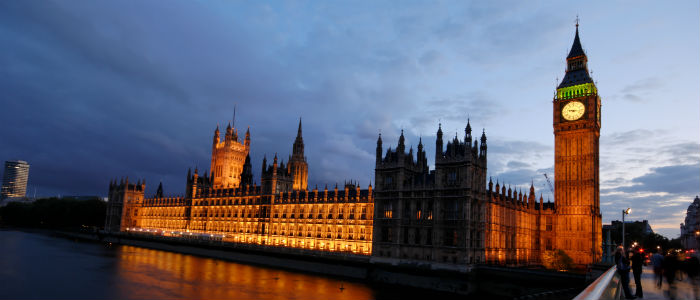On 30 August 2013, David Cameron asked the House of Commons to support the principle of military action against the Syrian government if it was shown to have used chemical weapons against its own citizens. His defeat in the Commons’ vote was widely expected to be the prelude to a crisis for his leadership, even putting the survival of the coalition government in the balance.
However, as Harold Wilson once said, ‘A week is a long time in politics’ – and a fortnight is a doubly protracted period. Thus, by the time that the annual conference season began for British political parties, just two weeks after the vote on Syria, media interest had switched from Cameron and the coalition to the main party of opposition and its leader – to Ed Miliband and the Labour Party.
In itself, the media focus on Labour need not have been bad news for the party. After all, the Opposition normally finds it difficult to win much notice; and at the start of the conference season Labour was continuing to enjoy an opinion poll lead, as it had done for most of the period since the 2010 general election. Furthermore, while even in the current celebrity-saturated context it would be wrong to claim that ‘no publicity is bad publicity’, the reason for Labour’s prominence in the news agenda was not necessarily damaging.
Solving the union problem?
In July Miliband had proposed that his party’s historic link with Britain’s trade unions should be modified. The existing situation was that, unless members of a union which was formally linked to Labour chose to ‘opt out’, they would be counted as ‘affiliates’ of the party and contribute to its funds through a ‘political levy’. In his speech to the Trade Union Congress on 10 September, Miliband argued that this arrangement denied individual trade unionists the chance to be truly active and influential within the party. If the procedure was changed so that trade unionists ‘opted in’ to the levy, they could be regarded as full members rather than mere affiliates. Instead of union leaders choosing whether or not to pass on their political funds to Labour, individuals would in future make direct contributions as a result of their own decisions.
When Miliband first aired his reform proposals in July, the issue of Labour’s close links with the unions was providing ammunition for the party’s critics. The selection of a new candidate in the Falkirk constituency had provoked allegations of sharp practice by the Unite union, and Miliband had ordered an investigation. Shortly afterwards, an opinion poll conducted by Ipsos MORI showed that 53 per cent of voters thought that Labour’s links with the unions were too close; just 28 per cent disagreed. Although Labour was still ahead of the Conservatives in terms of voting intentions, the gap was too narrow for comfort and by September was no more than 5 per cent - a pretty dismal showing for the main opposition party, in the context of a government which had taken so many unpopular decisions. Reforming the relationship with the unions would allow Labour to turn the debate over funding and influence against the Conservatives, who could be attacked for their over-reliance on wealthy business-people. It therefore seemed to be a sensible, if not an inescapable, move for the party’s leaders.
What do you think? Share your comments with us below.
Dr Mark Garnett teaches on our BA Politics and International Relations programme.
- Image © Rizami Annuar | Dreamstime.com
Disclaimer
The opinions expressed by our bloggers and those providing comments are personal, and may not necessarily reflect the opinions of Lancaster University. Responsibility for the accuracy of any of the information contained within blog posts belongs to the blogger.


